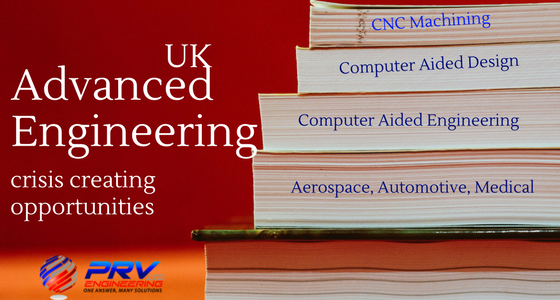Engineers are always in high demand and none more so than in advanced engineering. Looking to the future, the industry will need about 186 000 engineers by 2024. Another report, according to The Telegraph, suggests the UK is grossly lacking skilled engineers and would need 1.8 million new engineers and technicians by 2025.
Whichever way you look at it, these are big numbers to swallow. Engineering is not only central to ensure economic growth, it plays a vital role in global challenges. Among these are climate change, food security, health and safety, biodiversity, population and water security. Adding to the increased number of opportunities, engineering can yield significant financial reward.
Advanced Engineering and Education
In most cases, children learn about career choices from their parents and teachers. Unfortunately, though, not enough is done at school level to truly educate them about the rich rewards, financially and otherwise, engineering has to offer.
Some schools offer job training during the year but it’s not compulsory. In addition, engineering companies also don’t like taking on students primarily for health and safety reasons. This is understandable but where else do they start? Someone has to take the initiative and get young people involved. We’re not just talking about men; there is some concern that Britain lacks women in engineering with the lowest numbers in Europe. This issue can also be addressed through special education programs or campaigns.
It may sound easier said than done especially with Brexit and a new Government. No-one really knows where this will lead but there is hope in the form a new apprenticeship legislation. Companies will be granted an apprenticeship levy which can be used to educate, train and develop existing staff and also source new talent.
In the end, not all levels of education in the UK have the capacity to meet the growing demand but we can make a noticeable difference if the engineering community and employers work closely with schools and colleges. A promising sign is that 68% of engineering and technology students had full-time employment 6 months after graduating compared to 58% of all graduates (Source: EngineeringUK). It’s a pretty simple equation; when there’s demand, be the supply and engineering graduates are dimes in a dozen.
Opportunities within Advanced Engineering
One of the biggest areas of growth has been the automotive sector. Global vehicle manufacturers invested more than £6bn in the UK last year and produced almost 1.6 million vehicles. Another is the aerospace sector where Britain has about 20% of the global manufacturing market, just behind the US, and directly employing 100 000 people.
Engineering is a broad industry but there are 3 main areas within advanced engineering. For a student looking to specialise, one of the following sectors should be high on the list.
- In terms of employment, aerospace is the largest sub-sector with nearly a third of all employment positions in advanced engineering. Most of the largest aerospace companies have facilities in the South West and they are supported by more than 700 supply chain companies.
- The automotive sector is primarily in the Swindon area with a large share of vehicle part and sub-assemblies. They predominantly supply companies across the UK and Europe.
- Measuring instruments and biomedical devices shows particular strength in healthcare products, research and development.
Research from various sources has identified skills shortages in advanced engineering which presents unique opportunities for graduates. CNC Machining, Computer Aided Design and Engineering are some of the skills students should develop.
What Does The Future Hold?
There is a common goal and that is to inspire future generations to pursue relevant engineering qualifications and careers. Those already working in the industry should share their stories and do their utmost to encourage the younger generation to follow the engineering path.
At PRV Engineering we believe that children need to be exposed to engineering from a young age. Parents and teachers need to be more involved in promoting the industry.
What are your views on schools encouraging young boys and girls to follow a career in engineering? Do you think we should be doing more? If you have any suggestions please share with everyone in the comments sections below. We’ll also post your ideas, comments and suggestions on our social media channels.


Recent Comments